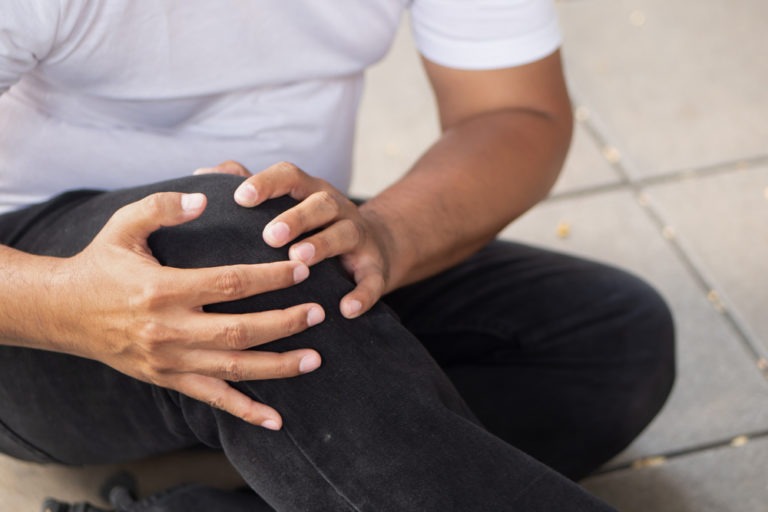
When you fall, you could experience injuries ranging from mild to severe. It is not uncommon for fall victims to suffer from one or more of the following types of injury:
- Cuts, scrapes, and contusions
- Broken bones
- Dislocations, ligament or tendon damage, and other joint injuries
- Serious injuries to the head or neck, including concussions
- Soft tissue damage
- Permanent loss of mobility
- Hip fractures
- Back and spinal cord injuries
- Disfigurement
The Centers for Disease Control and Prevention (CDC) notes that one out of every five falls leads to a serious injury, ranging from broken bones to head injury. Serious falls can happen to anyone, but they can be especially common concerns for elderly adults.
If you or a loved one was injured in a fall, it is possible that a third party contributed to your accident. Your fall may have been caused by a slick floor at a store or a poorly maintained parking lot—and someone else’s negligence could have been a factor. In some cases, it is possible for victims to seek compensation by filing an insurance claim or lawsuit against a liable party.
Falls Impact Victims Physically and Emotionally
If you suffered from a fall, there are many ways your life could be impacted. While some injuries are minor and require only moderate medical care, some fall accident victims could permanently lose mobility. Those with the most severe injuries could see significant, ongoing changes to their daily life.
For those who required advanced treatment, a fall could come with financial repercussions in the form of expensive medical bills, lost wages, and more. You may have faced the following expenses as a result of a fall:
- Hospitalization
- Surgery
- Ambulance services
- Emergency room treatment
- Physical therapy
- Medication
It is also possible that you could suffer emotionally from the traumatic effects of a fall. When a severe injury substantially impacts your life, you could face depression, anxiety, or even post-traumatic stress disorder (PTSD).
Understanding the potential causes of fall accidents can help you determine if another party could be responsible for your suffering. If a third party contributed, you could have legal options to seek the justice and compensation you may deserve.
Causes of Falls that You Can Include in Your Claim
Some of the more common causes of fall accidents include the following:
- Sensory or cognitive limitations, including those that result from aging
- Impairment from drugs, alcohol, or other mind-altering substances
- Poor property maintenance, such as improperly cleared walkways, snow left on the ground, slippery surfaces, bulging carpets, broken guardrails or stairs, and more
- Foot problems, balance issues, or a lack of mobility
As you can see, falls can take place for a variety of reasons. If you fell, the most important thing you can do is seek immediate medical attention. There is a chance that you suffered a potentially serious injury, especially if it is left untreated.
Following your accident, you could also consider your legal options if another party was at fault for your fall. You may be able to seek compensation through the legal process.
Proving Liability for Fall Accidents
If you were involved in a fall that resulted in injuries, determining who may be liable for those injuries can help you understand if you could pursue a claim or lawsuit. Legal action could help you financially during this challenging time.
Some ways in which third parties could be liable for negligence include:
- Failure to maintain a safe premises
- Assaults or other intentional harm through violent actions
- Failure to implement adequate fall prevention measures at a nursing home
We can help you determine who may be liable for your injuries and tell you more about how liability could work in your case.
Taking Legal Action After a Fall
A variety of factors can determine whether you could take legal action after a fall caused by someone else’s negligence. These factors include the determination of liability in your case, your state’s laws, and other factors. While determining liability and understanding personal injury law can be complicated, we can help you with these matters.
We can help you with navigating the legal process, filing paperwork, and working to seek the fair compensation you deserve. You may not have to bear responsibility for your medical costs and losses on your own—someone else could be responsible for these losses.
The Statute of Limitations on Slip and Fall Claims in Nevada
Following a serious fall accident, life could be feeling very uncertain. As you strive to return to a sense of normalcy, remember that you may have legal options available. It could be possible to seek several types of compensation, depending on your injuries. If you are interested in learning more, have specific questions, or would like to review your case for free, the team at High Stakes Injury Law is available to help.
Keep in mind that there is a statute of limitations for filing a lawsuit in personal injury cases. Though these deadlines vary by state, take action to learn more before it is too late to file. In Nevada, the statute of limitations for personal injury cases is typically two years.
Call Our Attorneys Today for a Free Consultation
Call today for a free consultation. We can help you determine who may be held responsible and file a claim against them. We are proud to serve accident victims.
